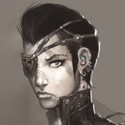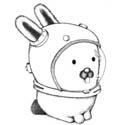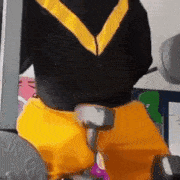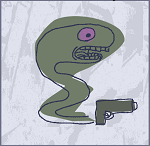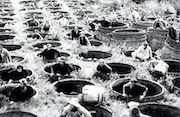|
After the Banquet by Yukio Mishima, about an older female woman who runs a fancy restaurant, falls in love with one of the patrons and helps him run a political campaign that ultimately fails. Elegant writing from Mishima as usual, but the political commentary was really lost on me.
|
|
|
|

|
| # ? May 30, 2024 11:18 |
|
Just finished American Elsewhere by Robert Jackson Bennett. The story was compelling enough to keep me reading until the end, but it was a slog. Mr. Bennett has never met an adjective or adverb he didn't like.. A better writer could have made this story shine, but in its current form, it's not a great read. Also, how much redundant exposition can an author fit into one book? Read this and find out! An editor with some balls and a sharp knife could have sliced 100 pages without breaking a sweat. tonytheshoes fucked around with this message at 16:31 on Oct 8, 2014 |
|
|
|
Dracula by Bram Stoker This was much better than I thought it would be. The story is told as a series of journal entries and letters/telegrams. It has lots of references to Catholicism and the soul. There's very little of the sexuality of modern vampires stories but it instead concerned with how becoming a vampire damns one to hell and the absence of God. The ending is rather abrupt and very anti-climactic.
|
|
|
|
I just finished S., the (fictional) 1949 novel Ship of Theseus by the (fictional) V.M. Strake with footnotes by the (fictional) F.X. Caldeira and annotations by the (fictional) ... you get the idea. It was written by an author named Doug Dorst, who apparently is a creative writing instructor and three-time Jeopardy champion, though J.J. Abrams provided the concept for the work. The concept is this: V.M. Straka is an enigmatic author whose true identity is unknown. He works closely with a translator, F.X. Caldeira. After Straka's untimely death, Caldeira has Straka's Ship of Theseus published posthumously. Straka was notoriously difficult to work with and never allowed annotations or changes to his works, but Caldiera willfully defies this and includes in Straka's final work a foreword and multiple footnotes that are at times bizarre or outright incorrect. How do we know that they are incorrect? Because a graduate student has underlined passages and written his own notes in the margins. Inscribed in his pencil on the title page: quote:* IF FOUND, PLEASE RETURN TO WORKROOM B19, He must have left it somewhere, though, because there is a handwritten note in blue pen directly underneath it: quote:Hey, I found your stuff while I was The owner of the book responds with a black felt-tip pen, the owner of the blue pen responds in kind, and in the margins of the work they explore Straka's murky history, the unusual footnotes by Caldeira, and find themselves getting embroiled in personal turmoil, hidden messages, and far-reaching conspiracy. First, off, this book is gorgeous. They went to great lengths to make this thing look like an old library book. There's a Dewey Decimal tag, the book is stamped with "NOT FOR LOAN," has stamped return dates in the back cover, and has yellow, stained pages. It lacks is old-book smell and the margins are curiously large but otherwise it looks like a library book from 65 years ago. (click for big, go to Imgur to see HUGE).  The workmanship continues in the body of the text itself. It seems that our two students might have been passing this thing back and forth for a while?  On top of that, stuck in the pages are telegrams, postcards, a newspaper clipping or two, a few handwritten notes and letters, and ... a drawing of the campus map on a napkin from a coffeehouse?     There's also this curious guy:  It's all a bit overwhelming at first. Eventually you figure out HOW to approach this story and its multiple timelines (it helps to understand the chronological order of the two students' annotations: pencil for Eric's own notes, starting when he was a teenager; blue ink and black felt pen on Jen and Eric's first set of correspondence; green and orange felt pens on their second set;the same black felt pen on their third and last set.) There's no right or wrong way to approach the book, though, from reading just he source text first and then going back through the various notes and supplements, to taking it all in at once, to a chapter-by-chapter hybrid, or whatever. I personally found it easiest to read each chapter with the penciled-in notes while ignoring the rest, then went back through the chapter and read the first set of correspondence. After I completed the book, I went through and read the next set of correspondence, etc. It's hard to ignore the annotations, though -- even if you try not to, your eye sometimes catches a note and leaves you wondering what led up to it or what will stem from it. The electronic version apparently lets you drop the annotations and read Ship of Theseus and its footnotes without the marginalia, but personally I like the physical book. But how was it? A complaint I've seen is that some reviewers just don't think the source text is good enough to justify the backstory -- that Straka was a genius whose mysterious life deserves the scrutiny of scholars. I personally loved the source story. It's not at all subtle or complicated and it positively drips with symbolism that screams, "LOOK AT ME, I'M SAYING SOMETHING HERE!" but I could definitely see a contingent of people searching desperately for clues to the elusive Straka's life and identity. The ultimate direction of the students' plotline is clear early on as well, but I still love how it played out and there's just enough left untied for the final annotation to represent either a happy ending or a tragic end. Apparently Abrams said this was "a love letter to the written word." A few reviewers seem to believe that S. is just a groan-worthy puzzle, an elaborate prop, instead of a worthwhile read. I disagree wholeheartedly, and think it's well worth the twenty-five bucks I pad for the experience. In retrospect I've liked a few books that would fall under histiographic metafiction -- The Princess Bride and The Historian jump to mind -- so I think I'll have to try a few others, namely Nabakov's Pale Fire and Byatt's Possession. (edited out a few stupid typos.) tetrapyloctomy fucked around with this message at 22:15 on Oct 8, 2014 |
|
|
|
tonytheshoes posted:Just finished American Elsewhere by Robert Jackson Bennett. The story was compelling enough to keep me reading until the end, but it was a slog. I liked this book but I do agree that it could have been trimmed down some - I think that there was a bit of a dilemma for the editors because on one hand - there is definitely a lull in the action in the middle but on the other hand that same lull in the action consists of pages that really develop the whole story line of the elder gods and their hosed up family life so it's kind of a catch 22 - you either amp up the pathos and bog down the action, or you keep the action flowing but lessen the emotional impact of the climax.
|
|
|
|
Black Flower by Young-ha Kim. Fictionalized account of a small population of Koreans who traveled to Mexico in the early 1900s to find work, get brutalized by some of the landowners, and are soon swept up in the Mexican Revolution. I always go out of my way to read stuff by contemporary Korean writers because they're so drat hard to find in translation. Also previously read I Have the Right to Destroy Myself and Your Republic is Calling You by the same author and thought they were okay. With this book, I wasn't sure what he was going for. Huge sections of the book read like they were straight out of a history lecture. I mean, the history itself is fascinating, but the prose is so drat inconsistent. Can't recommend it unless the concept strikes you.
|
|
|
|
tetrapyloctomy posted:I just finished S., the (fictional) 1949 novel Ship of Theseus by the (fictional) V.M. Strake with footnotes by the (fictional) F.X. Caldeira and annotations by the (fictional) ... you get the idea. It was written by an author named Doug Dorst, who apparently is a creative writing instructor and three-time Jeopardy champion, though J.J. Abrams provided the concept for the work. I picked up S a while back, having heard some good things about it and seeing how amazing it was produced. I completely agree with you on that point, a massive amount of effort was put into the production of that book. I've tried reading it over lunch breaks at work, but I gave up, as everyone asking me a thousand questions about it was way too distracting. I'm glad you were able to make sense of it, makes me want to give it another go in a quieter environment. My grade 12 English teacher made us read Pale Fire after he studied it in upper-level university. I absolutely hated it, but I get how it would fit into the same genre of "metafiction". Don't take my hating it as any comment on the book itself. I'm sure it's a lot better than my 16/17 year old self was able to comprehend.
|
|
|
|
S. sounds loving awesome. It seems like it's very similar to House of Leaves by Danielewski, which I absolutely loved. Thanks for the review and recombination!
|
|
|
|
Mira posted:Black Flower by Young-ha Kim. Fictionalized account of a small population of Koreans who traveled to Mexico in the early 1900s to find work, get brutalized by some of the landowners, and are soon swept up in the Mexican Revolution. I always go out of my way to read stuff by contemporary Korean writers because they're so drat hard to find in translation. I really don't think that he is that great of a writer personally. He tends to have sections that are just akward (thematicly not just what you can write up to translation) and kind of half baked.
|
|
|
|
Stravinsky posted:I really don't think that he is that great of a writer personally. He tends to have sections that are just akward (thematicly not just what you can write up to translation) and kind of half baked. True enough. Could just be rose-colored glasses on my part because of the dearth of contemporary Korean fiction.
|
|
|
tetrapyloctomy posted:I just finished S., the (fictional) 1949 novel Ship of Theseus by the (fictional) V.M. Strake with footnotes by the (fictional) F.X. Caldeira and annotations by the (fictional) ... you get the idea. I had heard about this, it sounds cool as hell. Thanks for the review.
|
|
|
|
|
I also bought S. but sold it back to half price because I heard that there is no real payoff. True or false?
|
|
|
|
blue squares posted:I also bought S. but sold it back to half price because I heard that there is no real payoff. True or false? I also have a copy, and I also heard this. I was very excited when I bought it but I got about 20 pages into it and read so many reviews labeling the book as 'merely mediocre' so I gave up because I felt like all the 'extras' were just too much work - which is too bad because I think the idea is phenomenal.
|
|
|
|
tetrapyloctomy posted:I just finished S., the (fictional) 1949 novel Ship of Theseus Huh, that sounds pretty interesting, almost like a cross between House of Leaves and the Griffin and Sabine trilogy.  I think I'll have to check it out.
|
|
|
|
They key is that it sounds interesting, sure.... but it isn't.
|
|
|
|
You read reviews of a book you've already bought and are currently reading?
|
|
|
|
Only it is, to some. It all depends on the buy-in. As a text without context, the book is just a weirdly-written symbolic tale. If your suspension of disbelief allows you to accept it as the posthumously-published work of a man so secretive that no one living is sure who he is, a man mixed up in important societal upheaval while leaving few clues as to his life and early death, then the metastory works. Sure, I'd love to see a version of this where Eco wrote the source text and pulled out all the stops, but this still kept me entertained. edit: huh, weird autocorrect from phone-posting just noticed. "MetaStock"? That'll teach me to post from work. tetrapyloctomy fucked around with this message at 13:33 on Oct 10, 2014 |
|
|
|
Mr. Squishy posted:You read reviews of a book you've already bought and are currently reading? Only when I'm bored and trying to decide if I should continue. And for me, yeah, again, that sounds cool. And I read a chunk of it, but all I got were mysteries that went nowhere.
|
|
|
|
blue squares posted:Only when I'm bored and trying to decide if I should continue. If you don't like the story or you can't accept the backstory, then by all means don't read it because I don't think the payoff will be worth it to you. But if your main concern is that it's just going to leave everything hanging, it does tie up the loose ends.
|
|
|
|
Thanks for posting some more detail
|
|
|
|
Mira posted:True enough. Could just be rose-colored glasses on my part because of the dearth of contemporary Korean fiction. If you have not checked out Yang Gui-ja, try her works. I found Contradictions to be really good. Yi Munyol also has put out several works in English but I will assume you already hit him up. If you have not Our Twisted Hero is a good entry point. I have heard good things about Park Wansuh but I have not read her yet. Same deal with Hwang Sok-yongg but a friend is really into his stuff.
|
|
|
|
Stravinsky posted:If you have not checked out Yang Gui-ja, try her works. I found Contradictions to be really good. Yi Munyol also has put out several works in English but I will assume you already hit him up. If you have not Our Twisted Hero is a good entry point. I have heard good things about Park Wansuh but I have not read her yet. Same deal with Hwang Sok-yongg but a friend is really into his stuff. Thanks for the lookout. You're right about Munyol and Twisted Hero, but I'm sure there's some other stuff by him I can dig up. I've had The Shadow of Arms by Hwang Sokyong on my backlog for a while now but haven't gotten around to it. And I haven't even heard of Wansuh or Yang Guija but will definitely have to check 'em out.
|
|
|
|
Not long just finished Goldfinch - Donna Tartt , it wasn't anything like I thought it would be which was a pleasant surprise. It was a very light read compared to what I usually read, although I felt that the story dragged on a little longer than it maybe should of been but there always seemed to be something going on. 8/10! Even went out and bought another one of hers!
|
|
|
|
elbow posted:For those of you who have read The Bone Clocks, do you think it adds much to the story if you've written everything else Mitchell has published first? I've only read Cloud Atlas and loved it, and knowing that he brings back characters from previous books in TBC, I'm still deciding whether to take the plunge into the rest of his novels or to just go for this one. Apparently it started as just fun easter eggs, but it's going to start tying together in a larger narrative or mythology or something. (If it was someone other than Mitchell, I'd kinda roll my eyes, but now I want to see it.) Reading the Bone Clocks, you can kinda tell that this is probably a very similar world to Cloud Atlas, in terms of what's up ahead in our future. That said, it's still at the point where you won't miss anything. Just make sure to read the other Mitchell books after, because they're good too. Especially Thousand Autumns of Jacob de Zoet. Actually, based on which characters show up in both, and how/why that's possible, I imagine reading Thousand Autumns after The Bone Clocks would be pretty interesting. EDit: to contribute and be relevant: I just finished the Bone Clocks! It was good. I read reviews that said the supernatural/fantasy stuff comes at a point where you really just want to continue with the non-fantasy stuff, and I as like, "pfff, whatever, I want to see that poo poo handled by Mitchell." But after reading it, yeah, they were right. The fantasy stuff isn't totally bad or anything, but it's the other stuff that makes you keep reading. DirtyRobot fucked around with this message at 12:43 on Oct 11, 2014 |
|
|
|
I finished The Southern Reach Trilogy (Annihilation, Authority, Acceptance) the other day. I'm really disappointed by it. It's more or less Solaris only three times longer -- and not in a good way.
|
|
|
|
Itachia posted:Even went out and bought another one of hers! Which one? I hope The Secret History.
|
|
|
|
Itachia posted:Not long just finished Goldfinch - Donna Tartt , it wasn't anything like I thought it would be which was a pleasant surprise. It was a very light read compared to what I usually read, although I felt that the story dragged on a little longer than it maybe should of been but there always seemed to be something going on.
|
|
|
|
DirtyRobot posted:Apparently it started as just fun easter eggs, but it's going to start tying together in a larger narrative or mythology or something. (If it was someone other than Mitchell, I'd kinda roll my eyes, but now I want to see it.) Reading the Bone Clocks, you can kinda tell that this is probably a very similar world to Cloud Atlas, in terms of what's up ahead in our future. Good to know, thanks! nate fisher posted:Which one? I hope The Secret History. I was going to say this too. The Little Friend was so disappointing.
|
|
|
|
The Road by Cormac McCarthy I read the last half alone while sitting next to a campfire. It had me rooting through my daypack and taking inventory at one point. Watching the ash from the fire get tussled by a breeze once I finished made me kill the embers and immediately hump my way back home to at least see my dog :/ Eerie as gently caress, but it certainly helped the immersion. The book was very good and reminded me of a more horribly cynical and fatalistic Faulkner. It may be a touch over-rated in some circles, but is a solid emotional ride and quick read. The ending, however, was a big letdown in my opinion. Anyone else feel the environment very much mimicked the dead Martian landscape Bradbury painted in The Martian Chronicles?
|
|
|
|
DirtyRobot posted:EDit: to contribute and be relevant: I just finished the Bone Clocks! It was good. I read reviews that said the supernatural/fantasy stuff comes at a point where you really just want to continue with the non-fantasy stuff, and I as like, "pfff, whatever, I want to see that poo poo handled by Mitchell." But after reading it, yeah, they were right. The fantasy stuff isn't totally bad or anything, but it's the other stuff that makes you keep reading. Just finish Bone Clocks as well and totally agree with this. When I read the reviews, I thought there was no way I wouldn't want the supernatural stuff, but after the awesomely beautiful Crispin Hershey section, it just felt weird.
|
|
|
|
The Polish Pirate posted:Just finish Bone Clocks as well and totally agree with this. When I read the reviews, I thought there was no way I wouldn't want the supernatural stuff, but after the awesomely beautiful Crispin Hershey section, it just felt weird. Count me in as someone who agrees to. My personal favourite section was the second, focusing on Hugo right at the crossroads of his life. Few people write charismatic assholes whom you hate and sympathize with as well as Mitchell, and Hugo is kind of his high water mark (I'm discounting Crispin Hershey as a fictional invention, since he is very clearly supposed to be Martin Amis). I was gripped and touched reading about him and Holly (and relieved to see that Holly had grown up mostly okay and had become a really awesome person), and desperately didn't want that section to end. The Hershey section, and the one with Holly's husband were also incredibly poignant and intriguing. By contrast, immortal body-hopping shadow wars just seems so far removed from the really human story being told. Still, it's my favourite Mitchell book by a fair margin.
|
|
|
|
Welp I'm staying up far too late finishing The Martian. Thanks a lot you jerks.
|
|
|
|
Franco Potente posted:Count me in as someone who agrees to. My personal favourite section was the second, focusing on Hugo right at the crossroads of his life. Few people write charismatic assholes whom you hate and sympathize with as well as Mitchell, and Hugo is kind of his high water mark (I'm discounting Crispin Hershey as a fictional invention, since he is very clearly supposed to be Martin Amis). I was gripped and touched reading about him and Holly (and relieved to see that Holly had grown up mostly okay and had become a really awesome person), and desperately didn't want that section to end. The Hershey section, and the one with Holly's husband were also incredibly poignant and intriguing. By contrast, immortal body-hopping shadow wars just seems so far removed from the really human story being told. Still, it's my favourite Mitchell book by a fair margin. I liked the Horologist section and its descriptions of the afterlife and history of the Blind Cathar or whatever they are ; however, when they get to the fight in the church and people are putting up shields and others are launching fireballs, it felt like I was watching someone play Skyrim, it was nonsensical . I would've much rather the chapter end just before that with the result ambigious and then maybe just sort of describe what happened in the very last chapter. Sometimes being subtle is better. On another note, I don't know if anyone paid attention to this but: during the fight, one of the bad guys tells Holly about the horologist taking over her brothers body and then kind of implies that the Horologists did it on purpose or something. Almost as if they purposely sacrificed Jacko so they could take him over knowing he would then be abducted because of his connection to Holly...did I read this wrong or was this something
|
|
|
|
Mao II. My first DeLillo book. The repetition gets to be really grating at certain parts, and a lot of the time I kept getting frustrated and shouting internally for the scene to just move on. Still a solid read, though, with some stylish prose.
|
|
|
|
Strands of Sorrow, by John Ringo John Ringo's fun zombie quadriology comes to an end, and is completely hilarious. I especially liked the fact that the future of humanity was essentially saved by Sarah Palin The fun part about these books is how essentially self-aware John Ringo is about his crazed right-wingedness. I usually summarize these books as starting out with the heroes as working for Halliburton, and going rightwards from there.
|
|
|
|
withak posted:Welp I'm staying up far too late finishing The Martian. Thanks a lot you jerks. For people still buying physical books, the paperback comes out at the end of the month.
|
|
|
|
Eating Fire: My Life As A Lesbian Avenger, by Kelly Cogswell. This book was a hard read, but a rewarding one. Not difficult because of the language, but because of the twinges of recognition with some of Cogswell's most cynical andfrustrated passages. Discussing her life and activism, the book begins with the founding of the Lesbian Avengers (a lesbian direct-action group active in the USA in the early-mid 90s). However, the Avengers and their activities - from gatecrashing a UNIFEM meeting to eating fire in front of the White House to organising the thousands-strong Dyke March - only make up the first half of the book. The group's dissolution marks a turning point in the narrative, and Cogswell travels to Cuba and Paris as the 21st Century dawns reflecting on her past and present identity, activism and visibility. It's sobering and sad to read about infighting and respectability politics, especially because of how relevant those issues still are in modern activism. When she talks about shame being a core part of mainstream LGBT establishment politics, the deliberate depoliticisation of queer issues, and how that impacts on real human beings, it's hard not to nod along. I learned a lot from this book, not just about queer activism but Cuban history, French contemporary politics, and the view from the ground at the height of the 90s culture wars. Above all, I felt inspired to continue my own activism, and to know when to speak.
|
|
|
|
Mouth Sewn Shut by Greg Slap. Somehow this book has landed on a few different "best horror novel" lists, and for the life of me, I can't figure out why. It sucked. Nothing scary about it, the revelations were handled with about as much suspense and skill as an episode of Scooby Doo.
|
|
|
|
Myrmidongs posted:I finished The Southern Reach Trilogy (Annihilation, Authority, Acceptance) the other day. I'm really disappointed by it. It's more or less Solaris only three times longer -- and not in a good way. Can you expand on what you disliked? I'd certainly say that Acceptance did not live up to Authority, which was the clear standout work of the three; but all of them are among the best fiction I've read this year.
|
|
|
|

|
| # ? May 30, 2024 11:18 |
|
Danger posted:Can you expand on what you disliked? I'd certainly say that Acceptance did not live up to Authority, which was the clear standout work of the three; but all of them are among the best fiction I've read this year. I loved Annhilation, but didn't care for the other two nearly as much and had to force my way through parts of Authority. Learning that the office politics of Authority were totally based on Jeff's experiences in the workplace makes it marginally more interesting, but still utterly meaningless. I wasn't mad about the way it ended, but nothing was going to live up to the weirdness/foreignness that was the first book.
|
|
|



